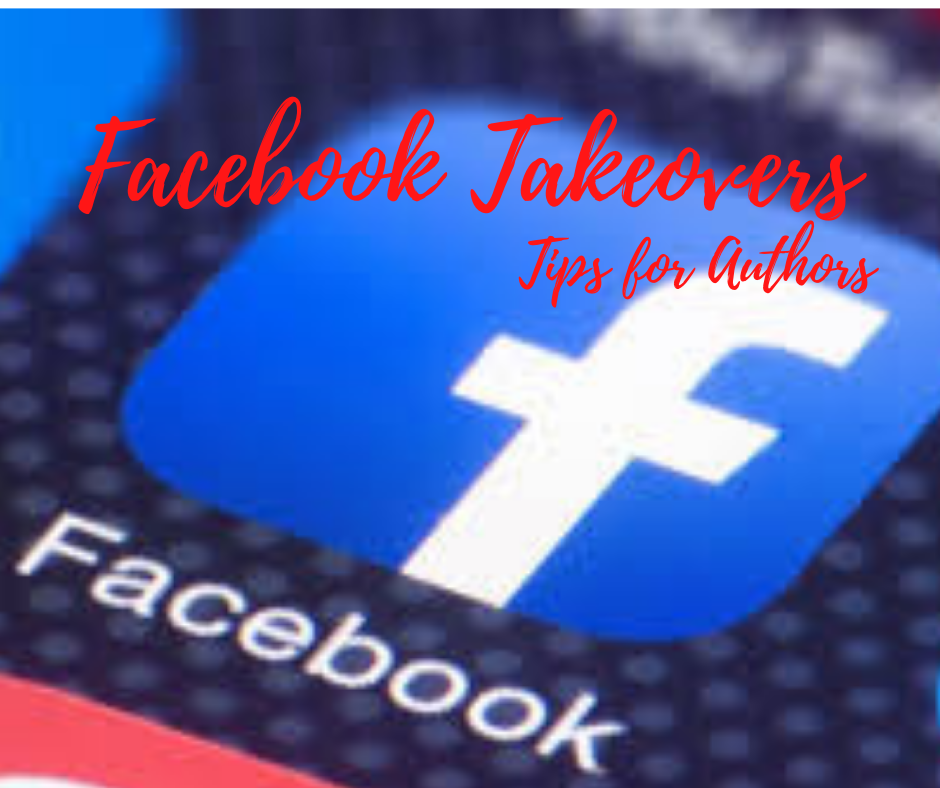Facebook Takeovers - What are They? What Do I Do?
/A Facebook Takeover is when another site (author, book group, etc.) on Facebook lets you control the content for a short period of time to talk about your books and interact with the readers. Usually the administrator of an established group will give you access to the site, so you can post. This allows you to meet an established following, and only members of that group are able to participate in the event. (This means you can’t invite your friends and fans unless they join the group.) Sometimes, takeovers are set up as Facebook Events, and you can usually invite your friends to participate because they are open to anyone who is interested.
Facebook takeovers are promotional tools to help you market your book and meet new readers. I love to interact with people on social media, so I’m excited when I get to introduce my cozies to a new group. Here’s what I’ve learned about takeovers....
It’s usually a good idea if you’re part of the group or community and that you are familiar with the members and their interests. If you’re not a member, join and visit ahead of your takeover, so they get to know you.
Follow all the instructions the administrator provides you for posting. Many want you to do a series of give-aways, and they provide guidance about dates, length of the event, prizes, and ways to interact.
Find give-ways that you can easily mail. Remember, most of these sites have a worldwide audience. If you have restrictions on your contest, you need to specify it up front. (It’s really expensive to mail a book or a mug to another country.)
Make sure all links work and you have access before your takeover begins.
Once you agree on a date and time, make sure to create a reminder for yourself, so that you’re not late. Also verify the time zone with the host.
Check out other takeovers on the site to see what the readers are expecting. Bright, fun graphics and short posts are usually best. I use Canva or BookBrush to create graphics that are sized correctly. I also like to have them branded with my book and website.
I open a Word document ahead of my event and post a copy of my graphics. and the text that I’m going to use. This allows me to proofread it and make sure it covers everything I want to highlight. Then during the take-over, I just have to copy the block and post the graphic.
The event is a place for you to introduce yourself and your book. Many authors talk about themes or places in their books and ask questions for the participants to answer in the comments. I make my questions related to an upcoming holiday and my book. (I talk about my sleuth’s job or hobbies and have a contest question about that. There is always a fuzzy sidekick in my book, so I do some kind of question/game with pets. People love to tell you about their pets and show pictures. Clothes, styles, food, and pop culture make great conversation starters.)
The idea is to have fun and get people to respond to your games or questions. Don’t over-complicate things with too many rules or conditions.
Some takeovers have multiple authors, and you get usually only one post, but you can add more information and links in the comments. Other events allow multiple posts. Remember, if you do twenty posts, you have to respond to all of them. For a take-over that lasts several hours, I usually do an activity or give-away every 30 minutes.
This should be a fun time for the participants where they can interact with you. Don’t just post and return only to select a winner. Check in periodically and make sure you react and comment.
If given a choice, I like to leave the contests open until the next day. This gives people in different time zones a chance to play.
Let the participants know where they can find you and your books.
Always thank your hosts and your participants. I usually create a “thank you meme.”
Check with your host; sometimes they announce the winners. If not, I make a graphic with all the winners. I also post it on my author page and tag the winners.
Remember that most of these sites or groups are administered by volunteers. Be a gracious guest and not a demanding diva.












